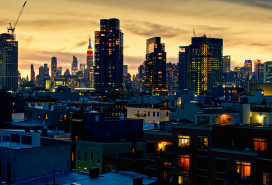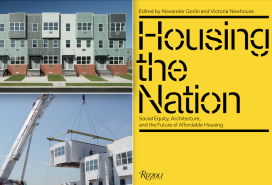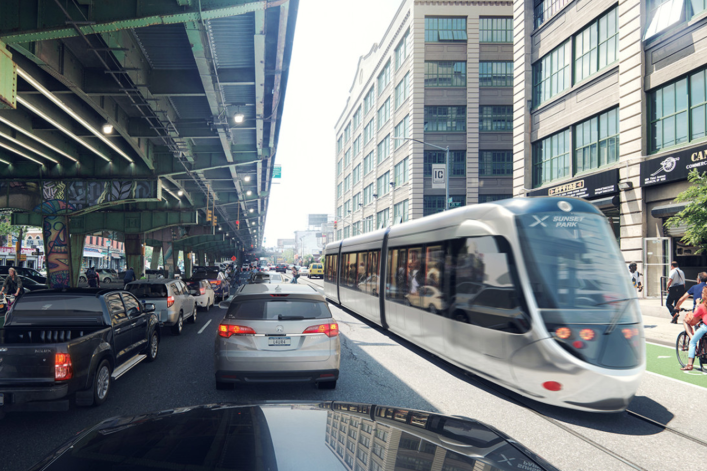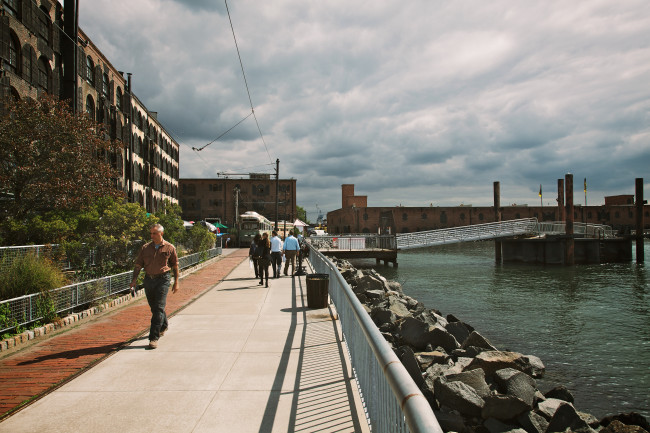A leaked new memo shows that the controversial new BQX Streetcar may not get funding
The proposed BQX streetcar between Brooklyn and Queens is already facing plenty of opposition from neighborhood groups concerned that it will spur rapid gentrification, while only serving wealthier residents. However, the project may be stopped in its tracks by something far simpler: a lack of funding.
A leaked February memo from the city's BQX Project Team to the city's deputy mayor Alicia Glen has been making the rounds, as Politico reports, and states that the 16-mile streetcar "faces several serious challenges," among them the fact that the project may not be able to effectively "pay for itself," as Mayor Bill de Blasio has repeatedly promised it would. (In fact, the idea that the BQX won't cost taxpayers any money has been a cornerstone of the city's argument in favor of the project.)
In particular, the projected cost is being driven up by the high price of moving various water, gas, and sewer mains that are currently in place under the proposed streetcar route. Per the memo: "Utility relocation continues to be the biggest single cost factor and if policies cannot be implemented to limit the impact, it has the possibility to make the project unaffordable and render implementation timelines unfeasible." (You can see a PDF of the full memo here.)
The memo continues, "Given the anticipated cost and complexity of implementing the BQX project and the likely need for the use of some City Capital, there may be merit in undertaking additional study/review and options analysis prior to the City making a financial decision on the project."
A spokesperson for the de Blasio administration responded to the leak with a statement that the city is still assessing the costs and potential revenue along the route, and de Blasio himself has now weighed in, telling NY1's Errol Louis, "We believe this is a vision that can work and can work on time. But if it turns out that upon further analysis we think there's a funding gap, I'm going to be very open about that and that's going to beg the question: How should we proceed? And we'll cross that bridge when we get to it."
However, de Blasio remains publicly confident that, as with the 7 train extension on Manhattan's west side, the city could recoup the cost of the project via property taxes, and without dipping into the MTA's over-burdened coffers.
As we've written previously, hearings about the project are expected to continue throughout the year, and even now, construction wouldn't begin any time before 2019. But in the meantime, this new information will only likely amplify critics who see the BQX as an overpriced gimme to developers and gentrifiers, and an unnecessary use of city funds.
You Might Also Like






























